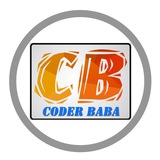What is c#?
What is C#?
C# (pronounced C-sharp) is a versatile and modern programming language developed by Microsoft. It was introduced in the early 2000s as part of the .NET framework. C# is widely used in various areas of software development, including desktop applications, web development, game development, backend services, and cross-platform development. It combines features from different languages and plays a crucial role in Microsoft's technology ecosystem.
What is C#?
C# (pronounced C-sharp) is a versatile and modern programming language developed by Microsoft. It was introduced in the early 2000s as part of the .NET framework. C# is widely used in various areas of software development, including desktop applications, web development, game development, backend services, and cross-platform development. It combines features from different languages and plays a crucial role in Microsoft's technology ecosystem.
Variables and Data Types
In C#, variables serve as containers to store data, and data types define the kind of data a variable can hold. Understanding variables and data types is fundamental for C# programming. Let's explore this crucial concept:
Variables:
Variables are like labeled boxes in which you can store different types of information. Before using a variable, you must declare it with a specific data type. C# offers various data types to accommodate different kinds of values, such as numbers, text, and more.
Data Types:
C# provides several built-in data types, including:
1. int: Used for whole numbers (e.g., 5, -10, 1000).
2. double: Handles decimal numbers with precision (e.g., 3.14, -0.5, 123.456).
3. string: Stores text and characters (e.g., "Hello, World!").
4. bool: Represents Boolean values, either true or false.
5. char: Holds a single character (e.g., 'A', '$', '7').
6. float: Similar to double but with less precision.
7. decimal: Ideal for financial and monetary calculations, providing high precision.
8. byte: Stores small numbers (0 to 255), often used in low-level operations.
9. long: For very large whole numbers.
10. short: For small whole numbers.
11. object: The most general data type, can hold any type of data (but use with caution).
Example:
Subscribe 👉 *@coderbaba*
In C#, variables serve as containers to store data, and data types define the kind of data a variable can hold. Understanding variables and data types is fundamental for C# programming. Let's explore this crucial concept:
Variables:
Variables are like labeled boxes in which you can store different types of information. Before using a variable, you must declare it with a specific data type. C# offers various data types to accommodate different kinds of values, such as numbers, text, and more.
Data Types:
C# provides several built-in data types, including:
1. int: Used for whole numbers (e.g., 5, -10, 1000).
2. double: Handles decimal numbers with precision (e.g., 3.14, -0.5, 123.456).
3. string: Stores text and characters (e.g., "Hello, World!").
4. bool: Represents Boolean values, either true or false.
5. char: Holds a single character (e.g., 'A', '$', '7').
6. float: Similar to double but with less precision.
7. decimal: Ideal for financial and monetary calculations, providing high precision.
8. byte: Stores small numbers (0 to 255), often used in low-level operations.
9. long: For very large whole numbers.
10. short: For small whole numbers.
11. object: The most general data type, can hold any type of data (but use with caution).
Example:
int age = 25; // Declare an integer variable.Understanding when and how to use these data types is essential for writing effective C# code. You'll also learn about more complex data structures, like arrays and lists, as you progress in your C# journey.
double price = 19.99; // Declare a double variable.
string name = "John"; // Declare a string variable.
bool isWorking = true; // Declare a boolean variable.
char grade = 'A'; // Declare a character variable.
Subscribe 👉 *@coderbaba*
